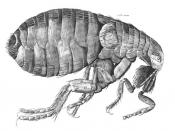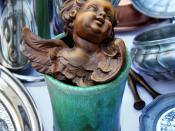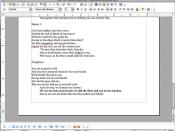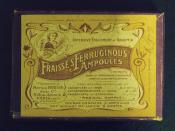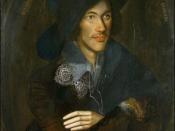The Flea The review by John Lauritsen he analyzes multiple works of Donne. One of such work he reviews is, "the Flea". In "the Flea" there is no mention of whether the person who is being spoken to is a man or a woman. This is an important fact when considering how the reader should try to interpret the poem, and how other implications like homosexuality, which was taboo in Donne's time, should be taken. In the poem a flea bites two individuals, and one of the bitten is having a discussion with the other. The flea has entrapped the blood of both of the people, there by forming a forbidden union within the flea. The combination of the two bloods could be seen as a symbol of creation and the idea of the possible birth of another. This creates strife for those who have been bitten. One of the bitten would like to end the life of the flea, and the union it has created between the two.
The other wants to preserve the union that was made by the flea. Honor is called into question to save the life of the flea, and the union it has made between the two bitten parties. "Just so much honor, when thou yeeld'st to mee," (26). This is a last attempt by the narrator to spare the life of the flea, and perhaps an attempt to save the life of the one who is pleading as well. In my interpretation of this last section the two people are making a decision to spare or take the life of an unborn child. The narrator is pleading for the life of the child, and believes so strongly that they are willing to take their own life if the child is not saved.
